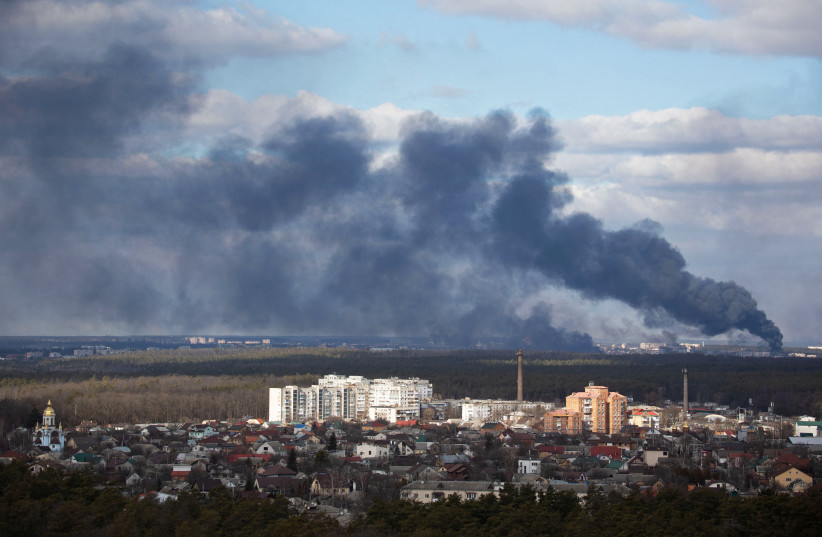Israel’s Foreign Ministry staff is working under fire in Ukraine, even as their union in Jerusalem is fighting for an increase in salary.
At issue is a 2017 agreement between the union and the Finance Ministry’s Salary and Employment Agreements Department to raise salaries in the Foreign Ministry, for the first time since 2000.
In reality, the union has said payment for the expenses of diplomats posted abroad has been cut resulting in them earning less than before.
The Knesset’s Foreign Affairs and Defense Committee held a hearing on Sunday in advance of a meeting with the Finance Ministry and the Treasury later this week.
Yosef Levi-Sfari, representing the workers, told the committee that an average Foreign Ministry salary was NIS 6,000-7,000, including for those who had served in Israeli missions abroad.

Such a low pay grade, Levi-Sfari said, harms the Foreign Ministry’s ability to attract the next generation, who fail to see a future for themselves, and that staff salary abroad also needs to be upgraded and is insufficient to provide for the needs of a family.
Nor, said Levi-Sfari, does it take into account that in quite a number of cases, ministry staff workers have to evacuate out of the country or move to alternative locations within the country they serve to ensure their safety.
He noted that if the war in Ukraine continues for more than two weeks, the families of the ministry staff that were evacuated back to Israel would have to foot the bill for their own expenses.
In addition, Levi-Sfari said there is a culture within the ministry that the staff is available round the clock, without any additional monetary compensation.
Everyone is excited that Israel has organized 100 tons of humanitarian relief for Ukraine, he said, but that came as the result of Galit Peleg, director of overseas programs at Mashav, because she worked all weekend without any promise of additional pay.
Levi-Sfari asked that the FADC hold a second hearing to ensure that progress had been made.
MK Ofir Akunis (Likud) said he believed the situation presented a “strategic threat” to Israel.
